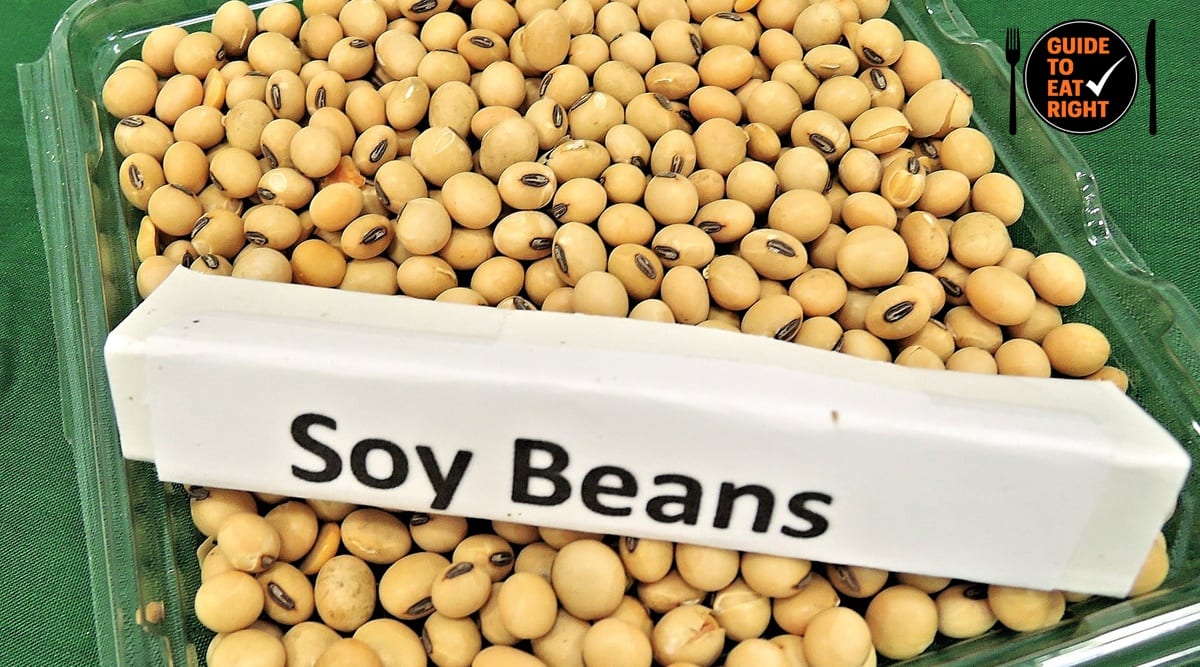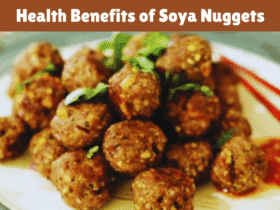Soybeans, scientifically known as Glycine max, are a versatile and nutritious legume that has gained significant popularity in recent years. With their rich protein content, essential amino acids, and various health benefits, soybeans have become a staple in many diets worldwide. In this comprehensive guide, we will explore everything about soya, including its origins, nutritional profile, health benefits, culinary uses, and more.
The History of Soybeans
Soybeans have a long and fascinating history that dates back thousands of years. The origins of soybeans can be traced back to ancient China, where they were cultivated for their various uses. Soybeans were initially used as a food source, but their versatility soon led to their utilization in various other aspects of life, including medicine, fabric production, and oil extraction.
Nutritional Value of Soybeans
Soybeans are renowned for their impressive nutritional profile. They are an excellent source of complete protein, meaning they provide all the essential amino acids required by the human body. Additionally, soybeans contain healthy fats, dietary fiber, vitamins, and minerals, making them a highly nutritious food choice.
According to the United States Department of Agriculture (USDA), 100 grams of raw soybeans contain approximately:
-
- Calories: 446
-
- Protein: 36.49 grams
-
- Fat: 19.94 grams
-
- Carbohydrates: 30.16 grams
-
- Fiber: 9.3 grams
-
- Vitamin C: 6 mg
-
- Calcium: 277 mg
-
- Iron: 15.7 mg
-
- Potassium: 1797 mg
-
- Magnesium: 280 mg
Health Benefits of Soybeans
The consumption of soybeans has been linked to numerous health benefits. Some of the notable advantages include:
-
- Heart Health: Soybeans contain unsaturated fats and phytochemicals, such as isoflavones, which have been shown to reduce the risk of cardiovascular diseases.
-
- Bone Health: The presence of calcium, magnesium, and other minerals in soybeans promotes bone health and helps prevent conditions like osteoporosis.
-
- Hormonal Balance: Soybeans contain isoflavones, which have a similar structure to estrogen. These compounds can potentially alleviate symptoms of menopause and promote hormonal balance in women.
-
- Digestive Health: The dietary fiber present in soybeans supports healthy digestion and prevents constipation.
-
- Weight Management: Soybeans are a nutrient-dense food that can contribute to a feeling of fullness, aiding in weight management efforts.
-
- Diabetes Control: The low glycemic index of soybeans makes them a suitable choice for individuals with diabetes, helping to regulate blood sugar levels.
Soybeans in Traditional Medicine
Soybeans have been an integral part of traditional medicine in various cultures for centuries. They have been used to alleviate ailments such as high blood pressure, inflammation, kidney problems, and respiratory conditions. However, it is essential to note that while soybeans may offer potential health benefits, consulting a healthcare professional is always advised for specific medical conditions.
Culinary Uses of Soybeans
Soybeans can be incorporated into a wide range of culinary creations. Some popular soy-based foods include:
-
- Tofu: Tofu, also known as bean curd, is a versatile soy product that can be used in savory and sweet dishes. It is an excellent source of plant-based protein and often used as a substitute for meat.
-
- Soy Milk: Soy milk is a dairy-free alternative to cow’s milk and is commonly used as a beverage or in cooking and baking.
-
- Soy Sauce: Soy sauce is a staple condiment in many Asian cuisines. It adds a rich, savory flavor to various dishes.
-
- Tempeh: Tempeh is a fermented soybean product with a firm texture and nutty flavor. It is often used as a meat substitute in vegetarian and vegan recipes.
-
- Miso: Miso is a traditional Japanese seasoning made from fermented soybeans. It is commonly used in soups, marinades, and dressings.
Different Forms of Soybeans
Soybeans are available in various forms to suit different culinary needs. Some common forms of soybeans include:
-
- Whole Soybeans: Whole soybeans are typically used for making soy milk, tofu, and other soy-based products.
-
- Soybean Oil: Soybean oil is a widely used cooking oil due to its neutral flavor and high smoke point.
-
- Textured Soy Protein (TSP): TSP, also known as soy protein isolate, is a processed form of soybeans that resembles ground meat. It is often used in vegetarian and vegan dishes as a meat substitute.
-
- Soy Flour: Soy flour is made by grinding roasted soybeans into a fine powder. It is commonly used in baking to enhance the nutritional value of bread, pastries, and other baked goods.
Common Misconceptions about Soybeans
Despite their many benefits, soybeans have been subject to several misconceptions. Let’s address some of the common myths surrounding soy consumption:
- Myth: Soybeans are estrogenic and can disrupt hormonal balance.
-
Fact: The isoflavones found in soybeans are phytoestrogens, which have a weak estrogenic effect in the body. However, their impact is significantly weaker than the estrogen produced naturally by the body. Moderate soy consumption is generally safe for most individuals.
-
- Myth: Soybeans are genetically modified (GMO) and therefore unhealthy.
-
- Fact: While it’s true that genetically modified soybeans exist, they are not the only option available. Organic and non-GMO soybeans are widely available and offer a healthier alternative for those concerned about GMOs.
-
- Myth: Soybeans are genetically modified (GMO) and therefore unhealthy.
-
- Myth: Soybeans are the cause of allergies.
-
- Fact: Soy allergies do exist, but they are relatively rare compared to other food allergies. Individuals with soy allergies should avoid soy products, but for most people, soybeans are a safe and nutritious food choice.
-
- Myth: Soybeans are the cause of allergies.
Is Soy Good for Everyone?
Soybeans are generally considered safe and healthy for the majority of people. However, some individuals may need to exercise caution or limit their soy consumption. Here are a few scenarios where moderation or avoidance of soy may be necessary:
-
- Thyroid Conditions: Individuals with hypothyroidism may need to monitor their soy intake as soybeans contain compounds called goitrogens that can interfere with thyroid function. However, moderate consumption is unlikely to cause significant issues.
-
- Allergies or Sensitivities: Individuals with soy allergies or sensitivities should avoid soy products to prevent adverse reactions.
-
- Infant Feeding: Infants who are exclusively fed soy-based formulas should be monitored by healthcare professionals, as soy can affect their development in certain cases. Consultation with a pediatrician is recommended.
The Environmental Impact of Soybean Cultivation
The cultivation of soybeans has both positive and negative environmental impacts. On the positive side, soybeans are a valuable source of plant-based protein, which reduces the reliance on animal agriculture. Additionally, soybeans have the potential to be a sustainable crop, as they enrich the soil with nitrogen, reducing the need for synthetic fertilizers.
However, soybean cultivation has faced criticism due to deforestation, especially in regions like the Amazon rainforest. The expansion of soybean farms has led to habitat destruction and loss of biodiversity. To mitigate these environmental concerns, sustainable farming practices, such as agroforestry and responsible land management, are being promoted.
Is Soya Good for Health?
Soya is indeed good for health due to its high nutritional value. It is an excellent source of plant-based protein, essential amino acids, and healthy fats. The presence of isoflavones in soya makes it beneficial for heart health, bone density, and menopausal symptoms. Additionally, soya contains fiber, vitamins, and minerals that contribute to overall well-being. Incorporating soya into your diet can help promote a balanced and healthy lifestyle.
Is Soya a Non-Veg?
No, soya is not a non-veg food. It is a plant-based protein source derived from soybeans. Soya and its byproducts, such as tofu and soya chunks, are commonly consumed by vegetarians and vegans as a substitute for animal-based protein.
Is Soya and Soy the Same?
Yes, soya and soy refer to the same legume. The terms “soya” and “soy” are used interchangeably in different regions and cultures. Whether you call it soya or soy, it refers to the same nutritious bean.
Is Soya Good as per Ayurveda?
According to Ayurveda, soya is considered a sattvic food, which means it is considered pure and beneficial for overall well-being. It is believed to be cooling in nature and helps balance the doshas (energies) in the body. Soya is often recommended in Ayurvedic diets as a healthy protein source.
Is It Safe to Eat Soya Every Day?
Yes, it is generally safe to consume soya every day. Soya is a natural food and does not pose any significant health risks for most people. However, like any food, it is essential to consume soya in moderation and maintain a balanced diet. If you have any specific health concerns or allergies, it is recommended to consult a healthcare professional or a registered dietitian before making significant dietary changes.
Can We Eat Soya Chunks Daily?
Yes, you can include soya chunks in your daily diet. Soya chunks are a concentrated source of protein and can be a healthy addition to meals. They are versatile and can be used in various dishes like curries, stir-fries, and salads. However, it is advisable to consume them as part of a balanced diet that includes a variety of other nutritious foods.
Is Soya Healthier than Paneer?
The comparison between soya and paneer depends on individual dietary preferences and nutritional needs. Soya is a plant-based protein source and is suitable for vegetarians and vegans. It is low in saturated fat and cholesterol and high in fiber. On the other hand, paneer is a dairy product rich in protein and calcium. Both soya and paneer can be part of a healthy diet, and the choice depends on personal dietary restrictions and preferences.
Is Soya Better than Chicken?
Comparing soya with chicken depends on various factors, including nutritional content, personal preferences, and dietary requirements. Soya is a plant-based protein source, while chicken is an animal-based protein source. Soya is low in saturated fat and cholesterol, making it a heart-healthy choice. On the other hand, chicken is a lean source of protein and provides essential vitamins and minerals. The choice between soya and chicken depends on individual dietary preferences, such as vegetarianism or personal taste.
Soya Bean: A Nutritional Powerhouse
Soya beans are highly nutritious and offer numerous health benefits. They are rich in protein, fiber, vitamins, and minerals. Here are some key nutrients found in soya beans:
-
Protein: Soya beans are an excellent source of plant-based protein. They contain all the essential amino acids required by the body.
-
Fiber: Soya beans are high in dietary fiber, promoting healthy digestion and preventing constipation.
-
Vitamins: Soya beans are a good source of vitamins, including vitamin K, folate, and vitamin C.
-
Minerals: Soya beans contain minerals such as iron, calcium, magnesium, and potassium, which are essential for overall health.
Are Soya Chunks Healthy?
Soya chunks are a healthy food option as they are a rich source of protein and contain various essential nutrients. They are low in saturated fat and cholesterol, making them a heart-healthy choice. Soya chunks are also suitable for individuals looking to incorporate plant-based protein into their diet.
Soya Chunks Protein per 100g
Soya chunks are known for their high protein content. On average, 100 grams of soya chunks contain around 52 grams of protein. This makes them an excellent protein source for individuals following a vegetarian or vegan diet.
Soya Chunks Side Effects in Males
Soya chunks do not have any specific side effects on males. However, some individuals may experience digestive issues like bloating or gas due to the high fiber content in soya chunks. It is advisable to consume soya chunks in moderation and ensure they are cooked properly to enhance digestion.
Soya Chunks Side Effects in Females
Soya chunks are generally safe for females to consume. However, it is important to note that soya contains isoflavones, which are plant compounds that mimic estrogen. Some studies suggest that excessive consumption of soya products may interfere with hormonal balance in females. It is advisable to consume soya in moderation and consult a healthcare professional if you have any concerns.
1000 Grams Soya Chunks Protein
If you consume 1000 grams of soya chunks, you would be getting approximately 520 grams of protein. This makes soya chunks an excellent protein source, especially for individuals following a vegetarian or vegan diet.
Frequently Asked Questions (FAQs)
1. What are the different types of soy products available in the market?
The market offers a wide range of soy products, including tofu, soy milk, tempeh, soy sauce, soybean oil, soy flour, soy protein isolates, and more. Each product has its unique characteristics and culinary applications.
2. Is soy milk a good alternative for lactose-intolerant individuals?
Yes, soy milk is an excellent alternative for individuals who are lactose-intolerant or follow a dairy-free diet. It provides a similar creamy texture and can be used as a substitute in various recipes.
3. Can soy consumption help in weight loss?
Soybeans are nutrient-dense and high in protein, which can promote satiety and aid in weight management efforts. However, individual results may vary, and a balanced diet and regular exercise are essential for sustainable weight loss.
4. Are there any potential health risks associated with consuming soy?
For most individuals, moderate soy consumption is safe and beneficial. However, individuals with specific health conditions, such as thyroid issues or soy allergies, should exercise caution and consult their healthcare provider.
5. How can soybeans be included in a vegetarian or vegan diet?
Soybeans are a valuable source of plant-based protein and can be incorporated into a vegetarian or vegan diet in various forms. Tofu, tempeh, and textured soy protein (TSP) are popular options that can be used as meat substitutes in a wide range of recipes.
6. What are some alternative sources of plant-based protein?
If soybeans are not suitable for you or you prefer variety, other plant-based protein sources include lentils, chickpeas, quinoa, chia seeds, hemp seeds, nuts, and seeds.
7. Is soya suitable for individuals with soy allergies?
Individuals with soy allergies should avoid consuming soya and soya-based products as they can cause allergic reactions.
8. Can soya help in weight loss?
Soya can be a part of a weight loss diet as it is low in saturated fat and cholesterol and high in protein and fiber. However, weight loss is a complex process that requires a balanced diet and regular exercise.
9. Is soya safe during pregnancy?
Soya can be safely consumed during pregnancy as long as it is consumed in moderation. However, it is advisable to consult a healthcare professional for personalized advice.
10. Are there any alternatives to soya for vegetarians?
Yes, there are various alternatives to soya for vegetarians, such as legumes, lentils, quinoa, and tempeh. These foods also provide plant-based protein and other essential nutrients.
11. Is soya recommended for children?
Soya can be included in a child’s diet, but it is important to introduce it gradually and ensure it is cooked properly. It is advisable to consult a pediatrician for specific recommendations.
12 Can soya cause hormonal imbalances?
Some studies suggest that excessive consumption of soya products may affect hormonal balance, especially in individuals with existing hormonal conditions. It is advisable to consume soya in moderation and consult a healthcare professional if you have any concerns.
Conclusion
Soybeans offer a wide array of health benefits, culinary versatility, and environmental sustainability. From their historical significance to their numerous applications in modern cuisine, soybeans continue to captivate individuals worldwide. Incorporating soybeans into your diet can provide a wholesome source of plant-based nutrition, but as with any food, moderation and individual suitability are key. Embrace the world of soybeans and explore the possibilities they offer for a healthy and sustainable lifestyle.












Leave a Reply